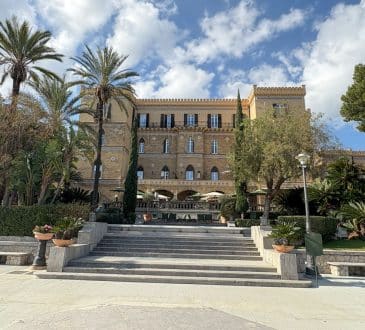Ghana’s Fashion Festival Tackles the Growing Crisis of Textile Waste

In Ghana’s bustling capital, early morning shoppers crowd into the sprawling secondhand clothing market, combing through piles of garments in search of bargains or rare designer finds. These items, imported primarily from Western countries, are often of low quality or heavily worn.
Meanwhile, just down the street, a vibrant, upcycled fashion festival unfolds. Models strut along a makeshift runway wearing creative ensembles crafted from discarded materials sourced from the Kantamanto market. The festival, known as Obroni Wawu October—an Akan phrase meaning “dead white man’s clothes”—aims to challenge the destructive cycle of overconsumption in Western nations, which has turned Africa into a dumping ground for textile waste.
Richard Asante Palmer, a designer participating in the event, explained that he repurposes textile waste to create usable items rather than letting the discarded clothes clog Ghana’s gutters, beaches, and landfills. The festival, organized annually by the Or Foundation, seeks to highlight the environmental toll of fast fashion and offer sustainable alternatives.
Ghana is a major importer of used clothing, receiving shipments from countries including the United Kingdom, Canada, and China. Some of these imports are redistributed to other West African nations, the U.S., and the UK. However, a significant portion of the clothing is in such poor condition that vendors discard it to make space for new arrivals. According to the Or Foundation, about 40% of the millions of garments sent to Ghana each weekend up as waste. The Ghana Used Clothing Dealers Association disputes this figure, suggesting only 5% of imported clothing is unsellable.
Secondhand clothing is an essential part of life in many African countries, where preowned items, including clothes, cars, and electronics, are more affordable than new ones. For many, it also offers a chance to own designer labels that would otherwise be out of reach.
Despite its benefits, Ghana’s rapidly growing population of 34 million and its overburdened infrastructure cannot cope with the volume of discarded clothing. Textile waste now litters Accra’s beaches and clogs its drainage systems, with much of it ending up in the Korle Lagoon and eventually the Gulf of Guinea.
Fast fashion’s emphasis on producing large volumes of low-quality goods exacerbates the problem, noted Neesha-Ann Longdon, business manager for the Or Foundation’s executive director. Local fishermen like Jonathan Abbey frequently find their nets filled with textile waste instead of fish. He explained that unsold clothes are often dumped into the lagoon, further polluting the environment.
Andrew Brooks, a researcher at King’s College London and author of Clothing Poverty: The Hidden World of Fast Fashion and Second-hand Clothes, pointed out that the rise of online shopping has accelerated the cycle of waste. In countries like the UK, unwanted clothes often end up in charity bins, but these donations are sometimes stolen and exported to markets perceived to have higher demand. Because these clothes are considered low-value items, authorities rarely investigate such thefts. Brooks noted that many donors mistakenly believe their castoffs will be recycled or given away locally rather than resold or shipped overseas.
The sheer volume of secondhand clothing exported to Africa has sparked criticism, with some accusing the West of treating the continent as a dumping ground. In 2018, Rwanda defied U.S. pressure by raising tariffs on secondhand imports, arguing that these goods undermined its domestic textile industry. Similarly, Ugandan President Yoweri Museveni recently proposed banning secondhand clothing imports, referring to them as “clothes from dead people.”
However, trade restrictions alone may not solve the problem. Experts argue that reducing textile pollution or boosting local production in Africa requires more robust measures, including better waste management systems and incentives for local designers.
In the absence of such solutions, organizations like the Or Foundation are stepping in. They aim to inspire young people and fashion designers to find creative uses for discarded materials. Allison Bartella, co-founder of the Or Foundation, observed that Ghana’s beaches were relatively free of textile waste until the country’s waste management crisis worsened in recent years. The foundation’s efforts, including initiatives like Obroni Wawu October, aim to reverse this trend and foster a more sustainable approach to fashion and waste management.
| GDP (nominal) | Capital | Head of State | Head of Government | GDP (nominal) per capita | GDP (PPP) | GDP (PPP) | GDP (PPP) per capita |
|---|---|---|---|---|---|---|---|
| Ghana | Accra | Nana Addo Dankwa Akufo-Addo | Nana Addo Dankwa Akufo-Addo | 76.628 | 2.329 | 227.189 | 6.905 |
Have you read?
Highest-Paid Athletes in the World.
Largest stock exchanges in the world by market capitalization.
Countries with the largest air forces in the world.
Best European destinations to travel to as a student.
Largest Cities in Africa.
Bring the best of the CEOWORLD magazine's global journalism to audiences in the United States and around the world. - Add CEOWORLD magazine to your Google News feed.
Follow CEOWORLD magazine headlines on: Google News, LinkedIn, Twitter, and Facebook.
Copyright 2025 The CEOWORLD magazine. All rights reserved. This material (and any extract from it) must not be copied, redistributed or placed on any website, without CEOWORLD magazine' prior written consent. For media queries, please contact: info@ceoworld.biz








